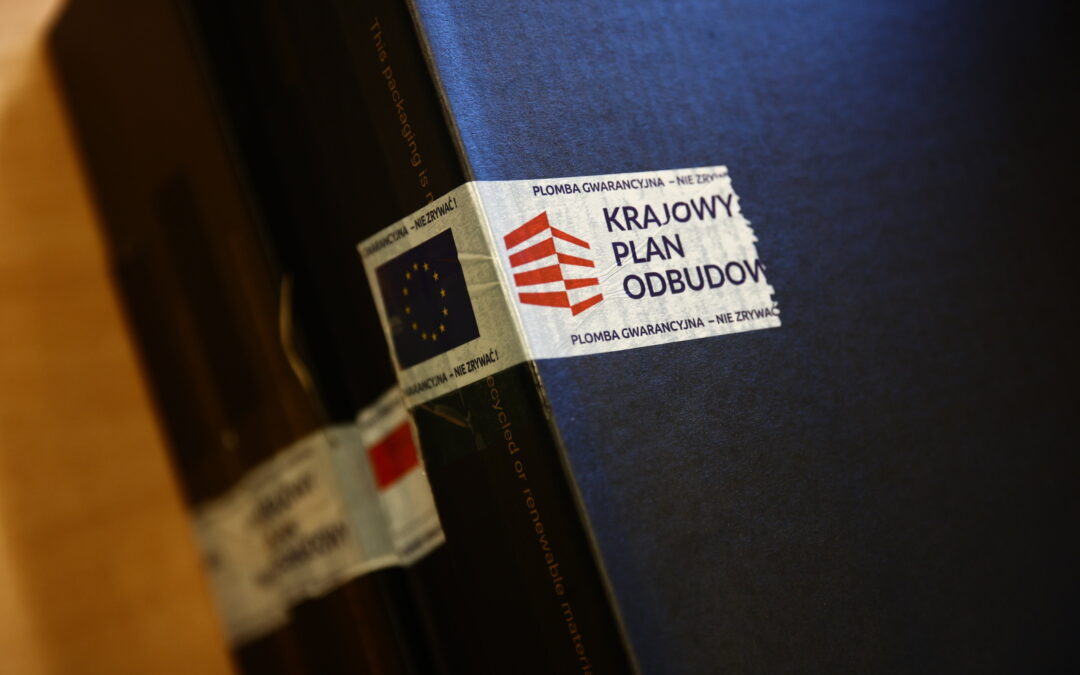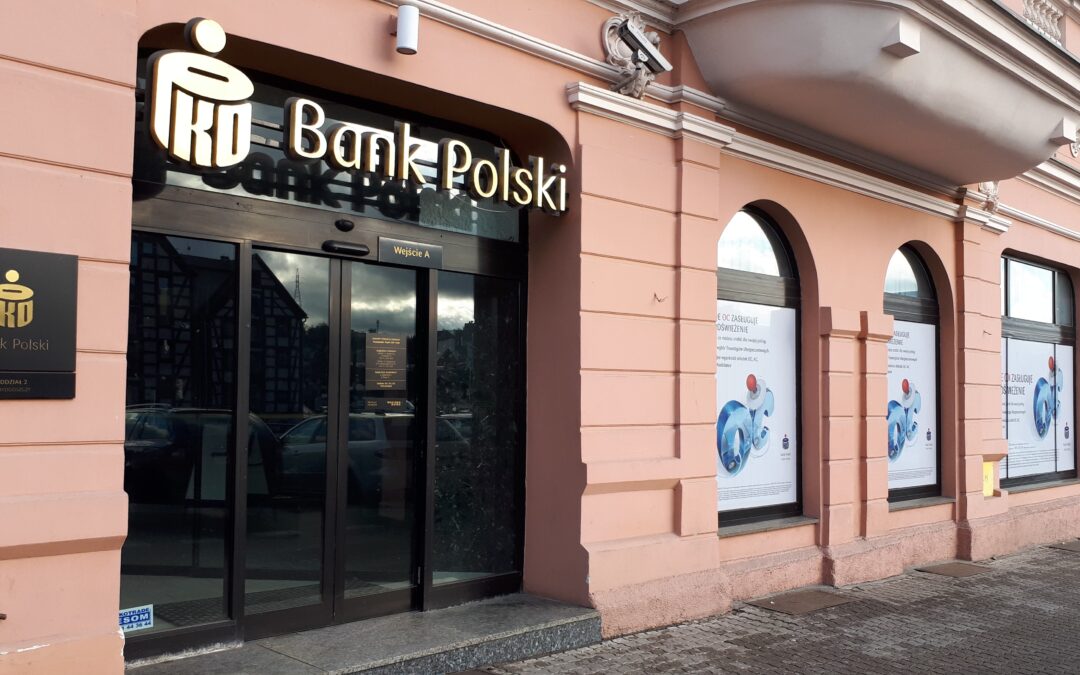Keep our news free from ads and paywalls by making a donation to support our work!

Notes from Poland is run by a small editorial team and is published by an independent, non-profit foundation that is funded through donations from our readers. We cannot do what we do without your support.
Poland’s government has revealed that the head of a state development agency was dismissed after doubts emerged over the spending of European Union funds intended for post-pandemic recovery.
Internet users this week discovered many cases of apparent spending of the funds on luxury items, such as yachts and saunas, and questionable projects, such as creating a platform to teach people how to play bridge and establishing a business called “Glamping with Alpacas”.
Prime Minister Donald Tusk today said there would be “zero tolerance” for misspending of the funds. However, two of his ministers have noted that the cases identified represent only a small fraction of the programmes in question.
Gdzie trafią pieniądze z KPO? Wnioski złożone o dofinansowanie jachtów, basenów i ekspresów do kawyhttps://t.co/D9jKr0Nj7s
— Rzeczpospolita (@rzeczpospolita) August 8, 2025
The spending comes from Poland’s so-called National Recovery Plan (KPO), the name given for its implementation of around €60 billion (255 billion zloty) of EU funds designated to help member states recover from the impact of the Covid pandemic.
Poland’s funds were initially frozen by Brussels due to concerns over the rule of law under the former national-conservative Law and Justice (PiS) government.
But they were unlocked last year after a new, more liberal administration led by former European Council President Donald Tusk came to power.
The funds are intended for use in a variety of sectors, including supporting energy transition, infrastructure modernisation and healthcare. But part is also devoted to helping businesses that were particularly hard hit by the pandemic.
The government’s website dedicated to the KPO published an interactive map showing grants that have been awarded to recipients in the hospitality, tourism and culture sectors, which together are due to receive a total of 1.2 billion zloty from the funds.
The aim of the programme is to “create conditions for building resilience in the event of further crises and to develop entrepreneurship among Polish companies”. However, internet users quickly began sharing examples of grants being given for projects that appeared questionable.
🟥 Afera z KPO i cisza w eterze. 🟥
Wśród dofinasowanych projektów z #KPO znalazła się rozbudowa pizzerii o solarium, zakup nowoczesnych i mobilnych ekspresów do kawy czy budowa domku na wodzie do spotkań biznesowych.
Absolutny skandal, który – trzeba wyjaśnić.
I szybko… pic.twitter.com/YhHgceV6mp— Wojtek Kardyś (@WojtekKardys) August 8, 2025
In one case, an interior design company received 455,000 zloty to diversify its operations by launching an e-learning course to teach people how to play the card game bridge, reports news website Gazeta.pl.
Another company received a similar amount to launch a business called “Glamping with Alpacas”. Other cases involved the purchase of yachts, saunas and ice cream machines.
After such examples began being widely posted and criticised on social media, the KPO website went offline (and remains so at the time of writing).
“This is blatant theft of public funds that were supposed to be spent on innovation,” wrote Marcelina Zawisza, a left-wing MP. “This is such a scandal that it’s mind-boggling.”
Setki tysiecy złotych na jachty, sauny, maszyny do lodów, platformy do gry w brydża a nawet na wprowadzenie najmu krótkoterminowego – na to idą środki z KPO. To jawne rozkradanie pieniędzy publicznych, które mialy iść na innowacje. Szczególnie, że na fabrykę leków już nie…
— Marcelina Zawisza #PartiaRazem (@mmzawisza) August 8, 2025
The scandal quickly prompted a response from the government, including Prime Minister Donald Tusk, who said that he “will not accept any wasting of funds from the National Recovery Plan”.
He revealed that he had “learned of possible irregularities, sloppiness or foolish allocation of funds” after speaking with Katarzyna Pełczyńska-Nałęcz, the minister for funds and regional policy. Tusk said that her “ministry has been aware of this for some time”.
The prime minister revealed that an audit at the Polish Agency for Enterprise Development (PARP), the state body responsible for overseeing the funds, was underway.
“Where expenditure was unjustified, I will expect a swift decision, including the revocation of funds. Zero tolerance for this practice,” he added, quoted by news website Onet.
💬 Premier @DonaldTusk 👇
Nie zaakceptuję żadnego marnowania środków z KPO. Trwa kontrola w Agencji Rozwoju Przedsiębiorczości, która odpowiada za te programy, które miały wspomagać branżę hotelarsko-restauracyjną. pic.twitter.com/IXt4TMMesn
— Kancelaria Premiera (@PremierRP) August 8, 2025
Pełczyńska-Nałęcz herself also commented on the issue. However, she sought to downplay the scale and nature of the problem and suggested that the scandal had been fanned by anonymous social media accounts publishing “out-of-context agreements to try to tarnish the entire project”.
“We have signed over 824,000 contracts in a year and a half and yes, with such a huge scale of investment, unfortunately unsuccessful contracts can happen,” she wrote, also noting that the programme in question only covers 0.6% of the entire KPO.
However, the minister added that action was taken in any cases where irregularities were identified. She also noted that she had ordered an inspection of PARP and dismissed its head, Katarzyna Duber-Stachurska.
Można nie robić nic – taką ścieżkę wybrał PiS blokując przez 2 lata KPO. A można wziąć byka za rogi i podjąć się realizacji w 2 lata największego projektu rozwojowego dla Polski. I tak zrobiliśmy my.
Podpisaliśmy w półtora roku ponad 824 tys. umów. I owszem, przy tak ogromnej…
— Katarzyna Pełczyńska (@Kpelczynska) August 8, 2025
At a separate press conference, deputy funds and regional policy minister Jan Szyszko confirmed that Duber-Stachurska had been dismissed in late July after the ministry “learned about the scale of the irregularities and the high probability of a systemic problem”. He admitted that “the issue is scandalous”.
Meanwhile, finance minister Andrzej Domański told Polskie Radio that “the KPO represents tens of thousands of investments and, of course, within such a vast pool, there will be examples of funds that were not properly spent”.
He agreed that “each instance [of misspending] must be investigated” but also called on people to “remember the true picture of the KPO, which is that the funds help modernise the Polish economy…in absolutely crucial areas”.

Notes from Poland is run by a small editorial team and published by an independent, non-profit foundation that is funded through donations from our readers. We cannot do what we do without your support.
Main image credit: Jakub Porzycki / Agencja Wyborcza.pl

Daniel Tilles is editor-in-chief of Notes from Poland. He has written on Polish affairs for a wide range of publications, including Foreign Policy, POLITICO Europe, EUobserver and Dziennik Gazeta Prawna.



















